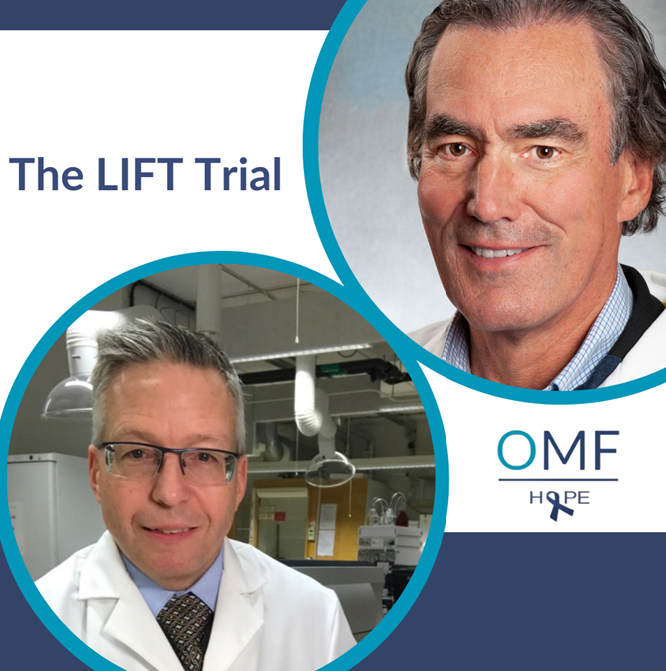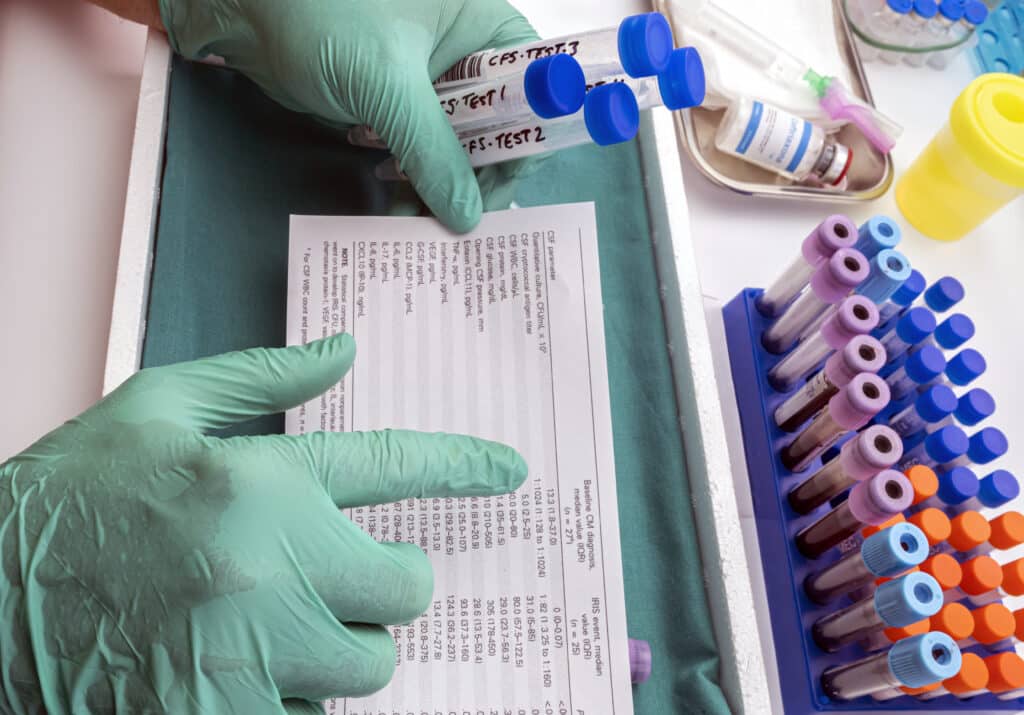Targeted Markers of ME/CFS and Post-COVID

Targeted Markers of ME/CFS and Post-COVID Study Aim This project aims to investigate specific markers of ME/CFS and Post-COVID identified through previous research. Investigators Jonas Bergquist, MD, PhD Liudmyla Tsiukalo, PhD Updates and Potential Subgroup analysis is ongoing. STUDY HYPOTHESIS AND DESCRIPTION Prior research has indicated that prolactin, brain-derived neurotrophic factor (BDNF), and neurofilament light […]
Large-Scale Biomarker Project (BioQuest)
Identify a biochemical signature for ME/CFS that can be conveniently evaluated through a blood test.
Multi-Omic Approaches to Solve Post-Acute COVID-19 (MOSAIC)

The purpose of this study is to facilitate early detection of ME/CFS in people with Long COVID and better understand disease progression.
MELLOW: Tracking Hormone Fluctuations in ME/CFS and Long COVID

The study aims to investigate how hormone fluctuations in individuals with ME/CFS and Long COVID, compared to healthy controls, impact metabolism and immune pathways by measuring hormones, metabolites, and inflammation markers in biofluid samples.
The Life Improvement Trial (LIFT)

The Life Improvement Trial (LIFT) aims to investigate two drugs, separately and in combination, Pyridostigmine (commonly known as Mestinon) and Low-Dose Naltrexone (LDN), for efficacy and to research the difference between responders and non-responders.
Temporally Resolved Omics Tracking of ME/CFS

This study seeks to understand the biological mechanisms driving the symptomatology of Myalgic Encephalomyelitis/Chronic Fatigue Syndrome (ME/CFS) using metabolomic and lipidomic high-throughput analysis and high-frequency blood sampling over a 6.5 to 7.5 hour period conducted at two separate sites (Melbourne and Uppsala).
Studying ME/CFS Pathogenesis via Cerebrospinal Fluid

The goal of this research is to reveal more information about the role of immunology and neuroinflammation in ME/CFS, and the underlying mechanisms of related pathogenesis that takes place.
Long COVID Clinic Studies

The clinic in Uppsala continues the work of the OMF-Funded MultiCenter Collaborative Study on COVID to ME/CFS progression.
Home Visit Study
This study provides a unique opportunity to bring the lab directly into patient homes and provide immediate analysis of samples over an extended period of time.
This longitudinal approach without the invasive and/or PEM-induced measures will be vitally important in other patient cohorts and will decrease the study impact on patients from using more invasive and impactful measures (use of 1 peripheral vein catheter for all blood samples, limits the impact on patients).
Deep Proteome and Metabolome Profiling
Decode the molecular mechanisms underlying ME/CFS and contributing to specific symptoms with a particular emphasis of post-exertional malaise (PEM). This includes deep phenotyping of ME patients and global proteomic/metabolomics plasma profiling of ME..